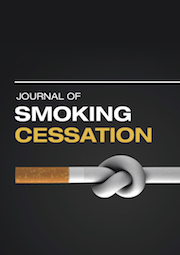No CrossRef data available.
Article contents
Smoking Cessation after Myocardial Revascularization Procedures
Published online by Cambridge University Press: 13 August 2014
Abstract
Introduction: Smoking is associated with the development of coronary artery disease and influences negatively the prognosis of patients undergoing myocardial revascularization procedures. However, the rate of smoking cessation after these procedures is not well established in the literature. We aimed to evaluate the rate of smoking cessation in patients undergoing revascularization procedures, immediately and after 12 months of follow-up.
Methods: We examined smoking patients from a unique cardiology center who underwent myocardial revascularization procedures between January 2010 and December 2011. These patients were allocated to two groups according to the revascularization procedure performed: Coronary Artery Bypass Grafting (CABG) and Percutaneous Coronary Interventions (PCI). Data related to cessation or maintenance of smoking were obtained at subsequent clinical appointments or telephone calls.
Results: Among 173 patients selected, 118 (68.2%) underwent PCI and 55 (31.8%) underwent CABG. After revascularization procedures, the total rate of smoking cessation was 79.3%. Furthermore, there was no significant difference between the two groups (83.6% – CI 95%: 71.2–92.2% for CABG, and 79.3% – CI 95%: 70.8–86.3% for PCI). The maintenance of smoking cessation after one year was 53.2%, similar between groups (52.7% for CABG and 53.4% for PCI). Nevertheless, the average time of smoking cessation was significantly higher in the CABG group (6.9 months versus 4.5 months for PCI).
Conclusions: Coronary interventions add important value to smoking cessation, and the smoking cessation rates were similar, independent of the procedure executed.
- Type
- Original Articles
- Information
- Copyright
- Copyright © The Author(s), published by Cambridge University Press on behalf of Australian Academic Press Pty Ltd 2014


